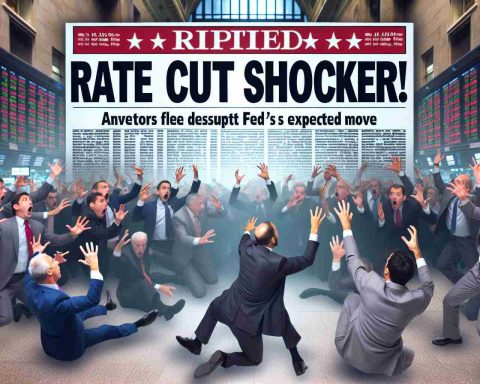An American musician has found himself in legal trouble after allegedly utilizing artificial intelligence to fabricate numerous songs and stream them through bots, prompting a demand for $10 million in copyright royalties. This situation has raised concerns regarding the potential misuse of AI in creative fields. The individual, Michael Smith, aged 54 from North Carolina, now faces serious charges, including conspiracy to commit electronic fraud, electronic fraud, and conspiracy to launder money.
The case, described by authorities as a blatant scheme, has drawn the attention of the FBI. Officials revealed that Smith reportedly created thousands of fraudulent accounts on popular streaming services like Spotify, Apple Music, and Amazon Music, generating around 661,000 streams daily and totaling approximately $1.2 million in annual royalties. Notably, he managed to bypass fraud detection systems that are designed to protect artists’ rights.
The operation came to light thanks to an investigation by the Mechanical Licensing Collective, an organization dedicated to ensuring fair copyright payments in the streaming industry. After being confronted with evidence in 2023, Smith denied the allegations. Now, as the case unfolds, he potentially faces up to 20 years in prison for each of the three charges. This incident marks a significant development in copyright law enforcement in the United States, echoing a similar case earlier this year in Denmark where an individual received an 18-month sentence for similar offenses involving AI manipulation.
Musician Charged for AI-Generated Copyright Fraud: New Developments and Challenges
In a striking case that has sent shockwaves through the music industry, North Carolina musician Michael Smith has been charged with multiple offenses centered around an elaborate scheme using artificial intelligence to generate fraudulent music. This situation raises profound questions about AI’s impact on the music industry and the legal frameworks currently in place to address such misconduct.
Key Questions and Answers
1. What is the legal definition of copyright infringement in the context of AI-generated content?
Copyright infringement occurs when a copyrighted work is used without permission. With AI-generated content, the lines can blur; if AI creates music that is derivative of existing works, determining authorship and rights can become complex.
2. How did the authorities discover Smith’s fraudulent activities?
The investigation by the Mechanical Licensing Collective, a body devoted to protecting copyright interests in music streaming, uncovered patterns of suspicious activity tied to unusually high streaming numbers that could not be attributed to legitimate fan engagement.
3. What does this case imply for the future of AI in the creative arts?
This case could prompt a reevaluation of how AI tools are deployed in the creative process and may lead to more stringent regulations to prevent misuse, highlighting the need for clear ethical guidelines.
Challenges and Controversies
One of the most important challenges is the ethical implications of AI in music creation. As AI technologies become increasingly sophisticated, the potential for misuse—such as creating works that infringe on copyright—becomes a significant concern. Many industry insiders argue for the formulation of new laws to specifically address AI-generated content, as existing regulations may not adequately cover these emerging challenges.
Furthermore, the case has sparked intense debate around artist compensation in the evolving digital landscape. The potential for AI to displace traditional artists who may rely on streaming revenues could lead to diminishing returns for genuine creators. Moreover, the practice of artificial stream generation undermines the credibility of actual artists, making it more difficult for them to gain fair recognition and income.
Advantages and Disadvantages
Advantages:
– AI can facilitate creativity and streamline music production processes, allowing artists to explore new genres and ideas.
– It can automate tasks such as sound mixing and mastering, freeing musicians to focus more on writing and composing.
Disadvantages:
– The risk of copyright infringement grows significantly, potentially leading to legal battles and financial loss for genuine artists.
– AI-generated music could saturate the market with low-quality content, confusing consumers and devaluing original works.
In the wake of this case, artists and industry professionals may need to adapt to a landscape where AI is both a tool for creation and a potential source of fraud. Legal experts speculate that rulings from Smith’s case could shape future legislation concerning AI usage in the creative space.
For additional insights into the intersection of AI and copyright law, you can visit Law360 to explore more about recent legal developments.

















